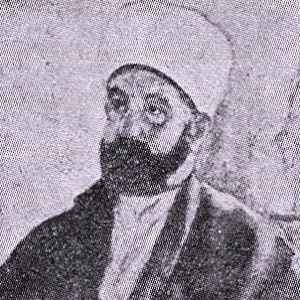Mustafa Hayri Efendi from Urgup
Ottoman Sheikh al-Islam, Minister, Member of Parliament, Religious Scholar, Statesman, Politician
A religious, political, and state figure, Sheikh al-Islam, member of parliament, and minister (b. 1867, Ürgüp / Nevşehir – d. 1921). He was the son of Abdullah Avni Efendi, who served as the Director of Religious Endowments in Tripoli. He was also the father of Suat Hayri Ürgüplü, a Kayseri Member of Parliament and a former Minister of Customs and Monopolies. He received his religious education in his hometown and in Istanbul, earning his certification. After graduating from the Istanbul School of Law, he began working in the judicial system. He served in various cities across Anatolia and Rumelia. Before 1908, while serving as the President of the Criminal Court in Thessaloniki, he joined the Committee of Union and Progress and became acquainted with revolutionaries. After the revolution, he entered the Ottoman Chamber of Deputies as the Member of Parliament for Niğde and was appointed Minister of Religious Endowments in 1910. He held this ministerial position four times and also served as Minister of Justice and President of the Council of State for a period.
In 1914, he was appointed as Sheikh al-Islam. The declaration of the "Great Jihad" when the Ottoman Empire entered World War I occurred during his tenure. During the Armistice period, he was arrested by the British and exiled to the island of Malta in 1919. Besides being a Sheikh al-Islam, he was also a high-ranking Freemason, reaching the 33rd degree. As Minister of Religious Endowments, he undertook significant projects, including the construction of foundation inns and the establishment of the Museum of Islamic Art during his tenure. İbrahim Alaeddin Asna described him as “a diligent and productive individual who also worked towards reforming madrasas.”

Mustafa Hayri Efendi, who served as Sheikh al-Islam from 1914 to 1916, is buried in the family cemetery in the courtyard of Ürgüp Cami-i Kebir.




